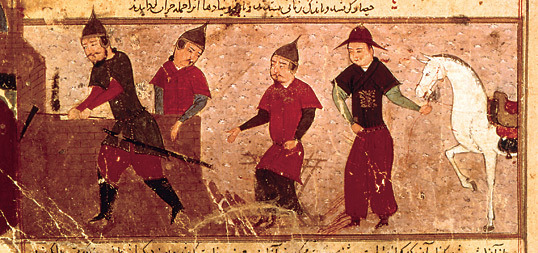date newest »
newest »
 newest »
newest »
message 1:
by
Bryn
(last edited Sep 10, 2013 03:50PM)
(new)
Sep 10, 2013 03:19PM
 Update next day. Aha — Caroline Humphrey has an article, ‘Regret as a political intervention: an essay in the historical anthropology of the early Mongols.’ It addresses this — and yes, indeed, as a political behaviour with a history to it. If I can only get this article…
Update next day. Aha — Caroline Humphrey has an article, ‘Regret as a political intervention: an essay in the historical anthropology of the early Mongols.’ It addresses this — and yes, indeed, as a political behaviour with a history to it. If I can only get this article…
reply
|
flag
 Do you hae the publication info, Bryn? If so, send me a message and I'll see if I can find it.
Do you hae the publication info, Bryn? If so, send me a message and I'll see if I can find it.Intesting post, but you knew I would think so. :-)
 Hey, C.P. Thanks for the offer of help.
Hey, C.P. Thanks for the offer of help.Journal is Past and Present, Issue 186, Feb 2005. --I have found a site that sells back issues. http://www.periodicals.com/index.html They can send me a single issue, although at hideous postage costs. :) :) I trust Caroline Humphrey to be worth the price though I haven't yet plunged.
 I probably could have found the article for you online, for free. Try it next time (or this time, if you haven't placed the order yet).
I probably could have found the article for you online, for free. Try it next time (or this time, if you haven't placed the order yet).In any case, hope it proves useful—and fun to read.
 Ahhhh Since you said this I tried further and yes, have found access, free online. I've learnt out of that -- to persist.
Ahhhh Since you said this I tried further and yes, have found access, free online. I've learnt out of that -- to persist. http://www.innerasiaresearch.org/CHsi...
 Feedback? Best thing I've read on the Secret History (it's entirely about the Secret History). Folks, if you want a single piece that characterises it... The topic sounds specific, but she talks about the heart and guts of the Secret History. Besides, "Studying regret enables us to penetrate to some extent the early Mongolian imagination."
Feedback? Best thing I've read on the Secret History (it's entirely about the Secret History). Folks, if you want a single piece that characterises it... The topic sounds specific, but she talks about the heart and guts of the Secret History. Besides, "Studying regret enables us to penetrate to some extent the early Mongolian imagination." I knew I was a big fan of this woman's work. She's an anthropologist and co-wrote Shamans And Elders: Experience, Knowledge And Power Among The Daur Mongols, a wonderful study of shamanism (in/and society).




